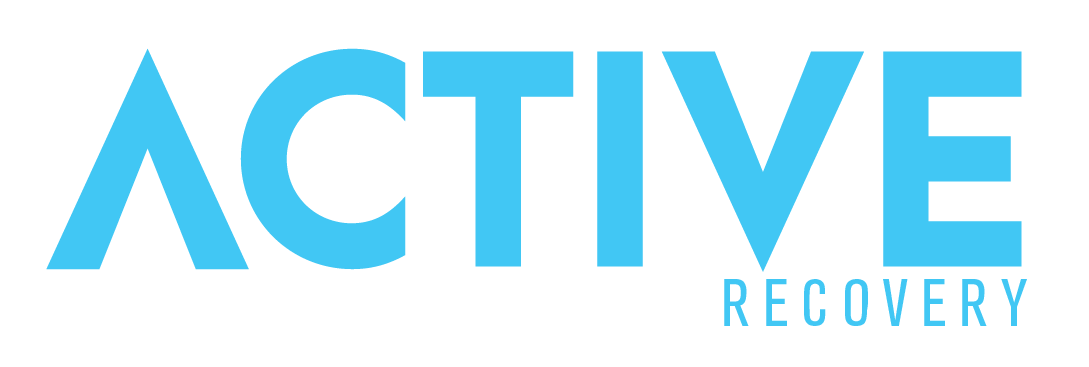Last Updated on October 18, 2023


As treatment for long-term sobriety changes, it also has a big impact on a person's rehabilitation needs. The demand for recovery coaching has been gaining importance recently. With increasing popularity, some may wonder what it takes to become a recovery coach.
As a leading sober companion company, we at Active Recovery Companions are here to break down the ins and outs of recovery coaches—who they are and what can they do for you. To learn more about becoming a recovery coach, contact us or continue reading for more information.
A recovery coach is like a supportive friend for people going through addiction recovery. With empathy and compassion, they provide a listening ear and share stories of hope and success with long-term recovery.
Recovery coaches also help in finding resources like therapy and support groups, advocating for an individual's best interests. Their role is to boost a person's confidence and self-assurance throughout their recovery, guiding them to a healthier, drug-free life.
Recovery coaches are a source of hope and encouragement, offering guidance that empowers individuals as they face challenges like drug withdrawal, relapse, and other problems in their journey to lasting recovery.
There are many tasks and duties that recovery coaches assume in this highly dynamic profession. Some of these roles include the following.
Providing Support: Recovery coaches offer consistent support to their clients, creating a safe and non-judgmental space for individuals to express their thoughts and concerns during the rehabilitation process.
Goal Setting and Planning: They assist clients in setting realistic goals and crafting personalized action plans that often cover areas like sobriety, mental health, and overall well-being.
Motivation and Education: Recovery coaches motivate and educate clients, leveraging their expertise in addiction to empower individuals, correct misconceptions, and promote informed decision-making.
Crisis Intervention: They excel in crisis intervention and management, offering immediate assistance and guiding clients in developing problem-solving skills during their recovery.
Advocacy: Recovery coaches advocate for their clients, ensuring their rights are respected and working with healthcare and addiction professionals to build a strong support network.
Promoting Accountability: They instill a sense of responsibility in clients, monitoring progress and encouraging the development of new skills that aid in a successful transition to a life in recovery.
Specialists often use terms like "recovery coach," "therapist," and "mental health coach" interchangeably, which can create confusion. It's important to clarify the distinctions between these roles to gain a better understanding of their respective functions.
In terms of their areas of focus, a recovery coach primarily assists individuals in practical steps and provides motivation to help them stay sober and achieve their goals. On the other hand, a therapist places their focus on delving into the understanding of emotions, thoughts, and mental health, offering guidance on how to cope with these things.
Regarding their training and qualifications, therapists are mandated to undergo formal education. They must complete certification programs and obtain licenses that enable them to provide therapeutic services to their clients. This formal education and certification process equips therapists with the necessary knowledge and skills to address a wide range of mental health concerns.
In terms of approach, a recovery coach provides practical guidance and support in a more casual manner, emphasizing motivation and accountability. In contrast, therapists offer structured, in-depth sessions that explore emotional and psychological issues, particularly related to addiction recovery.
Finally, the scope of these roles also differs significantly. A recovery coach primarily focuses on addiction recovery and personal growth, while a therapist addresses a broader spectrum of mental health concerns and various psychological conditions.
The path to being a certified addiction recovery coach is a demanding and rigorous one. Whether the plan is to work with recovery consultants or directly assist clients, one must be wholeheartedly committed and certain about their plan to become a recovery coach.
It all starts with self-reflection. Aspiring recovery coaches must be motivated by their own experiences or insights about recovery before they become a coach. While having personal experience with addiction is not a requirement, they must, at least, have the sincere desire to assist others.
They should also start developing essential skills such as active listening, empathy, crisis intervention, and relapse prevention. They must also work with support groups and recovery organizations, including treatment centers.
Although certification is typically not mandatory, it enhances their credibility if they undergo recovery coach training. This training helps them gain a better understanding of the community they are entering and the profession they are eager to join.
They must also have a positive mindset and recognize that their role can be mentally and physically demanding at times. It's important to anticipate moments of burnout and be ready to prioritize self-care. Neglecting their own psychological well-being all the time should be avoided.
Recovery coaching truly has become beneficial in so many ways. The news on the effectiveness of recovery coaches in Illinois reducing the exposure of babies to drugs is just one of the many testimonies to its value. Additionally, many hospitals nationwide are bringing recovery coaches onto their addiction specialty teams for further expertise.
Let's look at other aspects in which becoming a recovery coach is beneficial for a person.
Personal Fulfillment: Being a recovery coach brings personal fulfillment and job satisfaction. Witnessing someone successfully complete their peer recovery program is rewarding, knowing that you played a role in their progress and positive changes.
Flexibility: Recovery coaching offers a flexible career path. Certified addiction recovery coaches can set their own work hours, accommodating various schedules and lifestyles, including their own.
Personal Growth: Engaging in recovery coaching fosters personal growth and skill development. It involves building resilience, enhancing communication skills, and nurturing empathy as you work within the realm of recovery support.
Community Building: As a recovery coach, you foster relationships and build a community that's accepting, forgiving, and loving, creating a supportive environment for those in recovery.
Like many professions, there is a less glamorous side to something as noble as recovery coaching. Some of the negatives of coaching may include:
Emotional Strain: Dealing with difficult clients can take an emotional toll on recovery coaches. Not all clients successfully complete their recovery programs, which can be emotionally challenging.
Client Resistance: Some clients may resist the recovery process, and maintaining boundaries can be frustrating. With the rehab environment being almost like a "drug college", relapse remains a significant issue for many rehab clients, regardless of the ample peer recovery support available.
Ethical Dilemmas: Balancing client privacy with their safety is an ethical challenge for recovery specialists. Ensuring the well-being of clients while respecting their confidentiality can be a complex issue to navigate.
Training programs and recovery coach certification are not always mandatory for recovery coaching, but they can enhance one's knowledge and credibility in the field. This is why some individuals who plan to become recovery coaches still choose to undergo recovery coach training or attend a recovery coach academy.
Apart from the training you get to become a recovery coach, there are some skills required to ensure that you impart knowledge and foster relationships with your clients. Some of the necessary skills to be an adequate coach include:
Good active listener
Empathetic and compassionate
Excellent communication skills
Adequate problem-solving skills,
Patience and flexibility
Ability to be a self-starter and self-motivator as you are working with a client by yourself most of the time.
The salary of a sober and recovery coach widely varies as it is influenced by many factors such as location, years of experience, and the specific organization or practice they work for. But the range would be as low as $40,000 per year for entry-level recovery coaches to as high as $80,000 per year for specialized and certified coaches.

© 2023, Active Recovery Companions